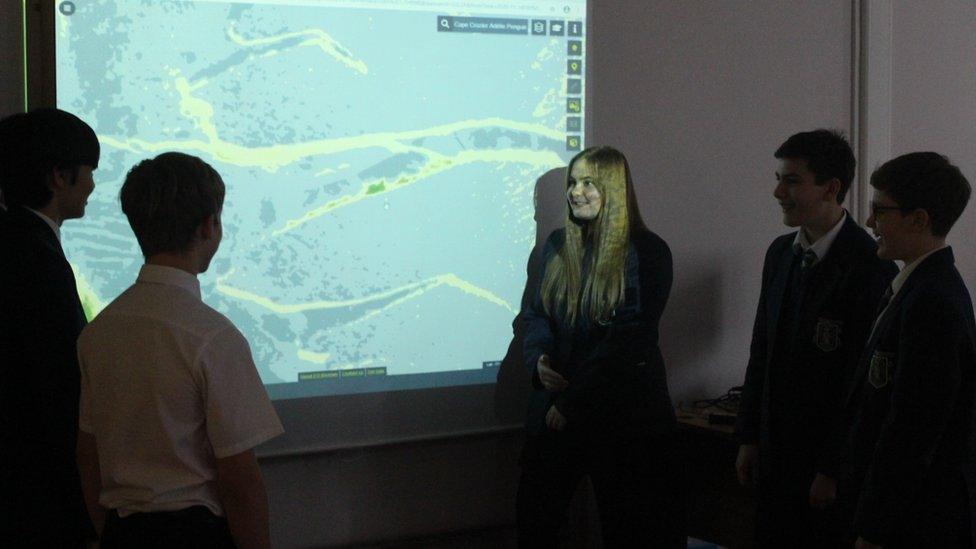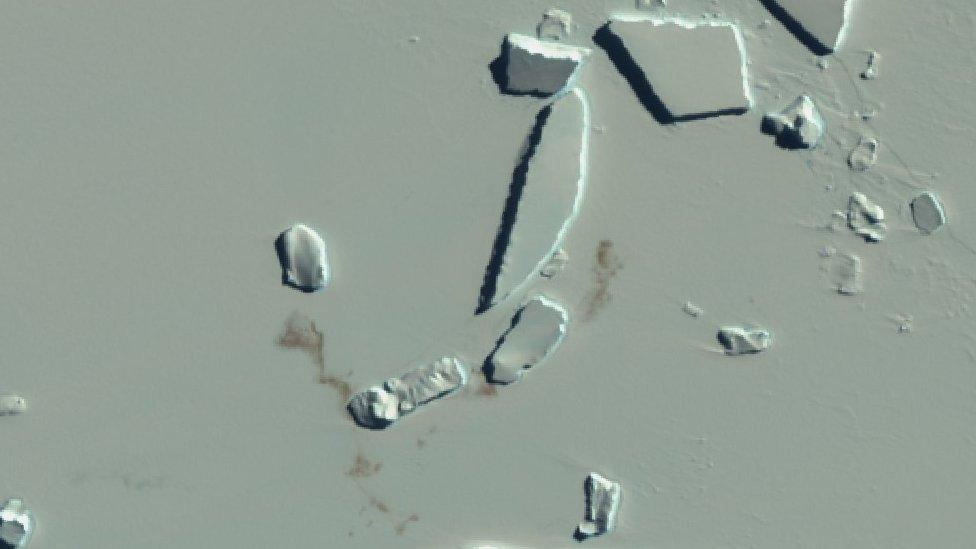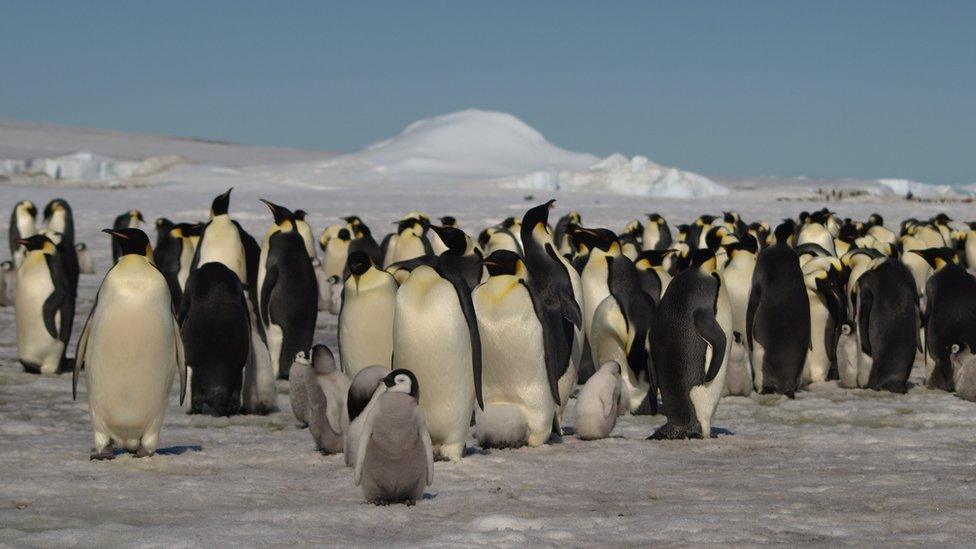Stirling pupils' penguin project pays off after new colony discovered
- Published

The pupils were inspired by a David Attenborough show on the plight of the penguins
A group of Stirling High School pupils have been praised after helping discover a new colony of emperor penguins in the Antarctic.
The pupils initially developed and coded an algorithm to identify penguin colonies from satellite imagery.
Researchers at the British Antarctic Survey then used higher-resolution imaging to confirm the colony.
Their study reveals nearly 20% more emperor penguin colonies in Antarctica than previously thought.

The smudges on the ice show the existence of an emperor penguin colony
The students were inspired by a Sir David Attenborough programme on the plight of penguins.
They wanted to see if the colonies could be located using freely-available satellite imagery and processing software.
Dr Andrew McDonald from Stirling High School said: "To be acknowledged in a peer-reviewed paper was a great boost to the group and showed that it is possible to perform meaningful real science in schools."
The pupils' work was part of an Institute for Research in Schools project called Earth Observation.

Emperor penguins need sea ice in order to breed
Dr Peter Fretwell and Philip Trathan, the geographers and researchers for the British Antarctic Survey, praised the pupils in their research paper on the study.
It found 11 new colonies, three of which were previously identified but never confirmed.
A number of colonies were located far offshore, situated on sea ice that has formed around icebergs that had grounded in shallow water.
Dr Phil Trathan, head of conservation biology at the British Antarctic Survey said: "Whilst it's good news that we've found these new colonies, the breeding sites are all in locations where recent model projections suggest emperors will decline.
"We need to watch these sites carefully as climate change will affect this region."